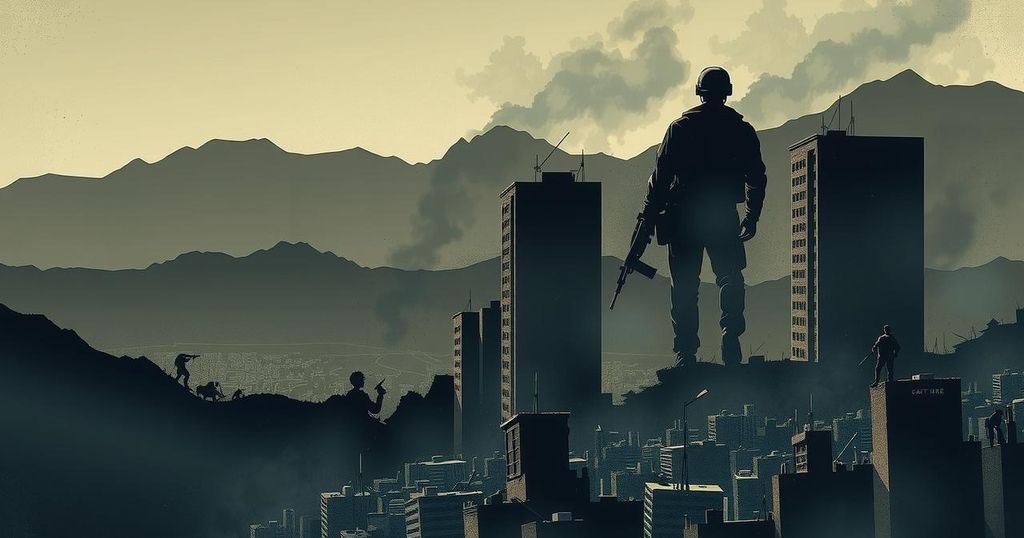Chaos in Bukavu: Rwanda-Backed Rebels Advance Amidst Congolese Retreat

Residents of Bukavu, eastern Congo, fled in panic as Rwanda-backed M23 rebels advanced. The situation escalated with reports of looting and violence following the withdrawal of Congolese troops. While M23 claimed control over strategic locations like the airport, the conflict continues to displace thousands and raise concerns for regional stability. Urgent action and community organization are needed to restore order amidst chaos.
On Saturday, panic erupted in Bukavu, eastern Congo’s second-largest city, as residents and soldiers fled amidst the advance of Rwanda-backed M23 rebels. Thousands fled the city, with reports of looting prevalent as people attempted to escape. Local residents witnessed the stark aftermath of violence, including burnt corpses left in the streets, which illustrated the chaos following the withdrawal of Congolese troops.
Although M23 rebels had not fully seized Bukavu, the situation remained tense following their earlier capture of an airport outside the city. Alexis Bisimwa, a Bukavu resident, noted a calmer atmosphere as gunfire ceased with the departure of Congolese soldiers. Still, looting activities continued unabated, raising concerns about safety and order.
Lawrence Kanyuka, spokesperson for the Congo River Alliance, urged citizens to maintain control amidst the disorder and avoid succumbing to panic. Meanwhile, Pierre Bahizi, the self-proclaimed governor installed by the rebels, called for community organization to restore order, emphasizing that power should not be left ungoverned.
M23, with an estimated 4,000 troops from Rwanda, threatens the Congolese government by advancing southward, potentially complicating international relations and scrutiny. The conflict has resulted in nearly 3,000 deaths and left around 350,000 people displaced in the region, according to both U.N. and local sources.
Rebels reported taking the airport serving Bukavu, crucial for military resupply and humanitarian aid. The Congolese government, while silent on immediate comments, confirmed that rebels violated ceasefire agreements and attacked troops trying to prevent urban combat. Soldiers had fled their positions, similar to previous events preceding M23’s capture of Goma just a month prior.
At the African Union summit, U.N. Secretary-General António Guterres warned about the likelihood of the conflict escalating regionally. He insisted on the importance of respecting Congo’s sovereignty, as regional leaders showed mixed responses toward decisive actions against M23 or Rwanda amidst the ongoing rebellion.
Additionally, the increased fighting in eastern Congo intersects with other regional conflicts, as neighboring countries like Uganda ramp up military action against various insurgents. The fighting highlights the need for regional stability, with leaders issuing ultimatums to armed groups, creating a highly volatile environment.
As the situation evolves, local civilians’ safety remains precarious, emphasizing the urgent need for a lasting resolution to prevent further escalation and humanitarian crises in the region.
The conflict in eastern Congo remains dire, with refugees and casualties mounting as M23 rebels advance towards Bukavu. Unfolding chaos due to troop withdrawals has led to rampant looting and casualties among civilians. Amidst calls for international awareness and intervention, the persistent rebellion poses significant threats to regional stability, with many internally displaced. Addressing the conflict demands urgent attention to avoid further escalation and human suffering.
Original Source: www.click2houston.com







